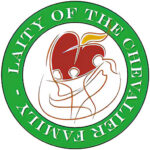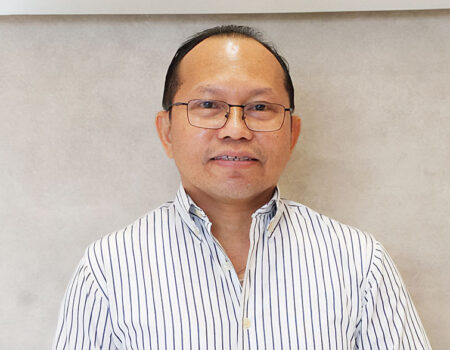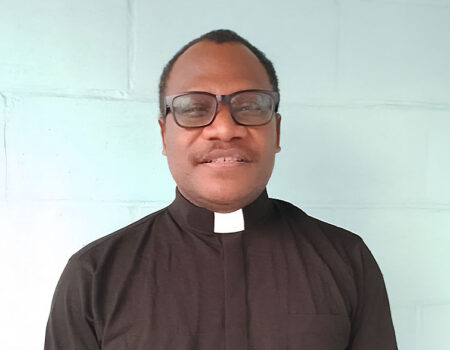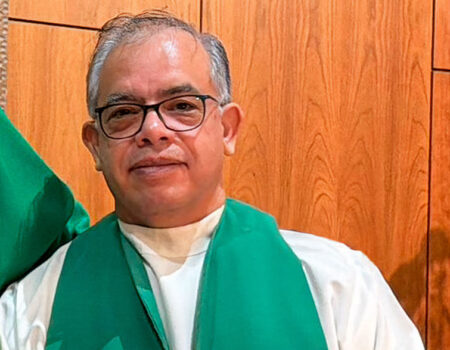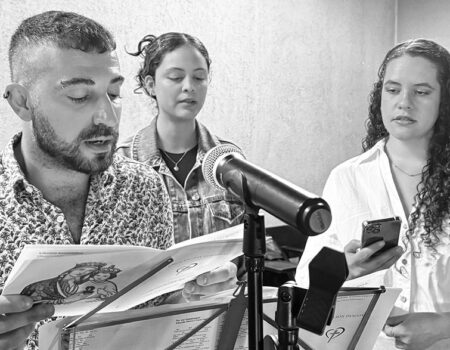LCF: Mission in the Chevalier Family
Laity of the Chevalier Family
Thursday October 24, 2024
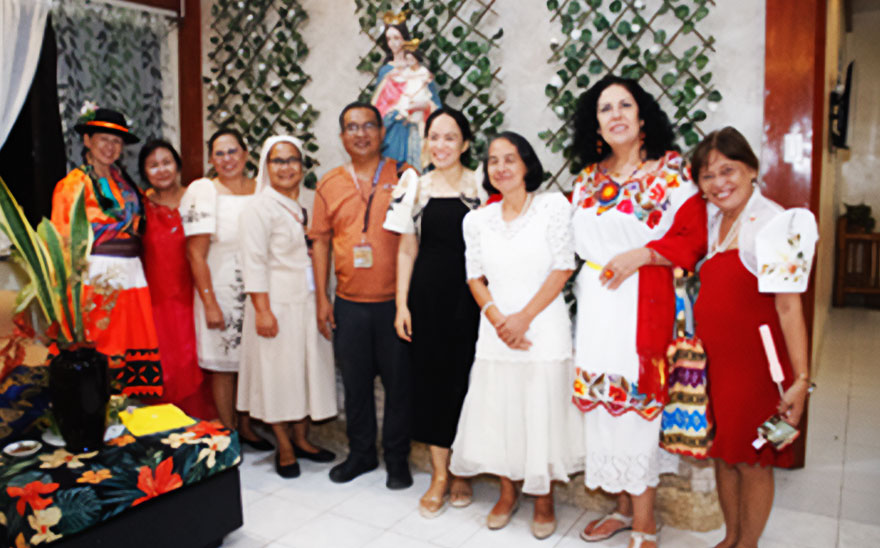
For Fr Chevalier, it was unthinkable that the mission of the Missionaries of the Sacred Heart to be undertaken without the laity. He saw lay people as a third branch alongside the Chevalier Family’s religious and diocesan laity. It was an idea well ahead of its time, both culturally and ecclesial, and it has taken all these years from that initial vision to begin to deeply discern what his vision might look like in 2024.

The emergence of the International Council of the Laity of the Family in 2017 is a significant step along the journey to understand this vision. The Council did not emerge in a vacuum – it grew out of fifty years of post-Vatican 11 work as the Spirit moved amongst us. The purpose of the Council is very simple, and that is to connect members of little groups of laity scattered all over the world in every country where the Chevalier Family religious exist. Like religious, the laity are so much stronger when we are aware of who we belong to and are connected with each other. This was very evident at our recent Assembly.
In the early days of the emergence of lay groups, the model was focused on religious forming laity, and there was a necessary dependence of laity on religious. We wanted what we saw in you, and we needed you to lead us. And you did lead us superbly. We generally called you our Spiritual Directors, and appropriately, you were in charge of the groups. You formed us so well that we have matured over the years and begun exploring our distinct vocation as laity within the Chevalier Family. We recognise that we share the same spirit as religious, but we live that spirit in a very different way. We are beginning to find language and images to depict the lay vocation in the Chevalier Family.
The explanation of our logo describes this very well:
The Logo is distinctive in its features and differs from the explicitly Christian images of the MSC, FDNSC and the MSC Sisters. While the key symbols of Spirituality of the Heart are present in the recognisable but softly drawn Sacred Heart and Cross of Jesus, the Logo also contains strong images of the human interconnection and interrelationship that are identifying features of our shared charism, yet at the same time point to the distinctiveness of our Lay Charism, where we live in families, we earn our living in our communities, and we commit ourselves in a way that is different from professed members. When the images are considered through the eyes of our Charism, they point us to foundational scriptures: since it is in him (LOVE) that we live and move and exist (Acts 17:28) and this LOVE of God has been poured into our hearts by the Holy Spirit which has been given to us (Romans 5:5) and whoever fails to LOVE does not know God, because God is LOVE. (1 Jn 4: 8)
‘Organisationally, we are also maturing. We recognise that we must be responsible for our organisation, our formation and our finances, and we are beginning, through the network of International and National Councils, to undertake these responsibilities. We don’t see ourselves as an independent group; we don’t want to break away from our families of origin, but we are asking that we be seen as an autonomous third branch that is interconnected with our religious brothers and sisters. Quoting from the statement of identity on the Homepage of our website:
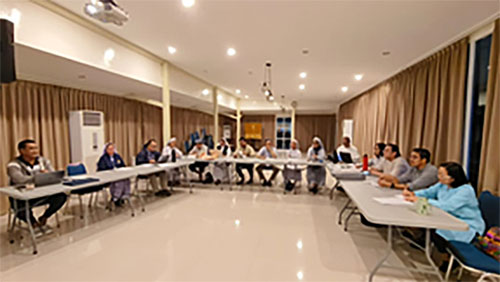
At the international level, the governing body (the International Council) of the Laity of the Chevalier Family is not considered to be underneath the professed members and serves alongside the governing bodies of the professed. This is also the vision at the national and local levels and is a work in progress. The professed and laity are interconnected, each with its own autonomy. This is Synodality in practice.
There is work to be done to enable this vision to flourish. Amongst the laity, we call the religious who accompany us as Spiritual Companions, not Spiritual Directors. Fr. Abzalon referred to what we are asking of religious as a mindset shift. We ask that you accompany us as companions on our journey to the heart rather than direct and control us. We are asking that you actively encourage us into a mature self-understanding of our place in the family. We recognise that the only purpose for all that is emerging is for the sake of engaging in our shared mission of ‘making the Sacred Heart of Jesus known and loved everywhere’.
At a recent meeting of the International Council with the Trigeneralate members of the International Council, we agreed to this vision statement:
- We envision the Chevalier Family to consist of three branches (only two are currently operational) the Religious and the Laity.
- We envision a laity who are deeply formed in Spirituality of the Heart, through the lens of their family of origin (FDNSC, MSC sisters, and MSC men) but also, who recognise and celebrate their unity in diversity.
- We hope that this understanding of the Lay Charism could be a gift to the whole Chevalier Family where traditional divisions and differences are less important than our shared mission.
- We recognise that formation of the laity into this expansive vision is a work in progress, and as an ideal, but not yet a reality, it is the responsibility of the laity to form new members and to engage in ongoing formation. Currently, in many places, it is still essential and desirable for all formation to be offered by Spiritual Companions.
- We ask that formation of religious into this expansive vision be a role that the Religious Congregations assume.
- We further ask, that formation of Spiritual Companions rather than Spiritual Directors be undertaken by the Congregations so that this role comes to be seen as a key role within Provinces, ideally offered to younger members who have a passion for the laity and a capacity to form mature faith groups who are aware of their key role to contribute to the shared mission.
You might think this is a dream, but it is happening in Indonesia. The Indonesians are leading the world in this mindset shift guided by Petrus Maringka, Fr Sam Maranresy msc and Fr Joni Astanto msc.
Petrus says:
“The Laity of the Chevalier Family is a movement dedicated to living the Spirituality of the Sacred Heart of Jesus daily, whether at work, at home, or community. To live this Spirituality of the Heart, it is essential that we fully understand it, a process that is neither easy nor quick but requires ongoing dedication. The Missionaries of the Sacred Heart (MSC) priests, the MSC sisters (not present in Indonesia), and the Daughters of Our Lady of the Sacred Heart (DOLSH) are religious congregations rooted in this Spirituality of the Heart. In Indonesia, we also have two other congregations, the FBHK and TMM, which share this focus. These religious communities, with their deep knowledge and understanding of the Spirituality of the Heart, play a vital role in realizing the vision of Father Jules Chevalier.
For the Chevalier Family laity to grow and thrive, continuous collaboration between the laity and religious communities is crucial. In Indonesia, the Chevalier Family comprises four religious orders and one lay group, all working together to spread the good news and embody God’s heart on earth. The lay groups formed in parishes and communities must continue to grow and receive regular and ongoing formation. Briefings on Heart Spirituality, led by these religious groups, will help impart the charism and Spirituality of the Heart as envisioned by Father Jules Chevalier. This collaboration will strengthen and empower the Chevalier Family lay group as they continue to develop.
The vision of Father Jules Chevalier—”May the Sacred Heart of Jesus be loved everywhere”—remains highly relevant today and is desperately needed. Violence persists across the world, affecting people of all ages, from adults to children, in both families and public spaces. This issue is exacerbated by the rapid development of technology, which makes harmful content easily accessible to everyone. In today’s world, human priorities often shift toward self-interest, making selfishness difficult to control. This behaviour affects people’s faith, leading many to rely on their strength and self-confidence while abandoning God.
Efforts to introduce more people to the Spirituality of the Heart are essential in addressing these challenges and combating violence. By understanding the Spirit of the Heart, individuals are called to emulate Jesus in loving, forgiving, serving, and fostering a culture of love within their families and communities”.


